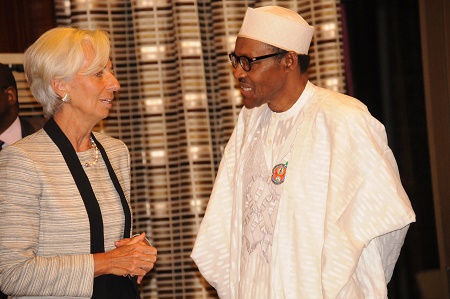The International Monetary Fund (IMF) has revised down Nigeria’s economic growth rate for 2018, with a new forecast of 1.9 percent, according to its latest report on the World Economic Outlook.
In December 2017, the organization announced a growth rate of 2.1% of GDP, thanks in particular to reforms undertaken by the government. She had nevertheless drawn attention to the fragility of Nigeria’s economic situation, despite a recent exit from recession.
In terms of inflation, the IMF announces a forecast of 12.4%, after the 16.5% recorded in 2017, and 13.5% for 2019. A forecast that it attributes to the tightening of monetary policy and the moderation of rising food prices.
In its report, the international fund also indicates that sub-Saharan Africa should grow by 3.1% and 3.8% respectively in 2018 and 2019. Rates slowed down the Nigerian, South African and Angolan economies .
“The continent could do much better if these economies are based on stronger foundations, especially South Africa and Nigeria. They are really big and affect a number of countries in their neighborhood, “says Gian Maria Milesi-Ferretti from the Research Department of the International Monetary Fund.



